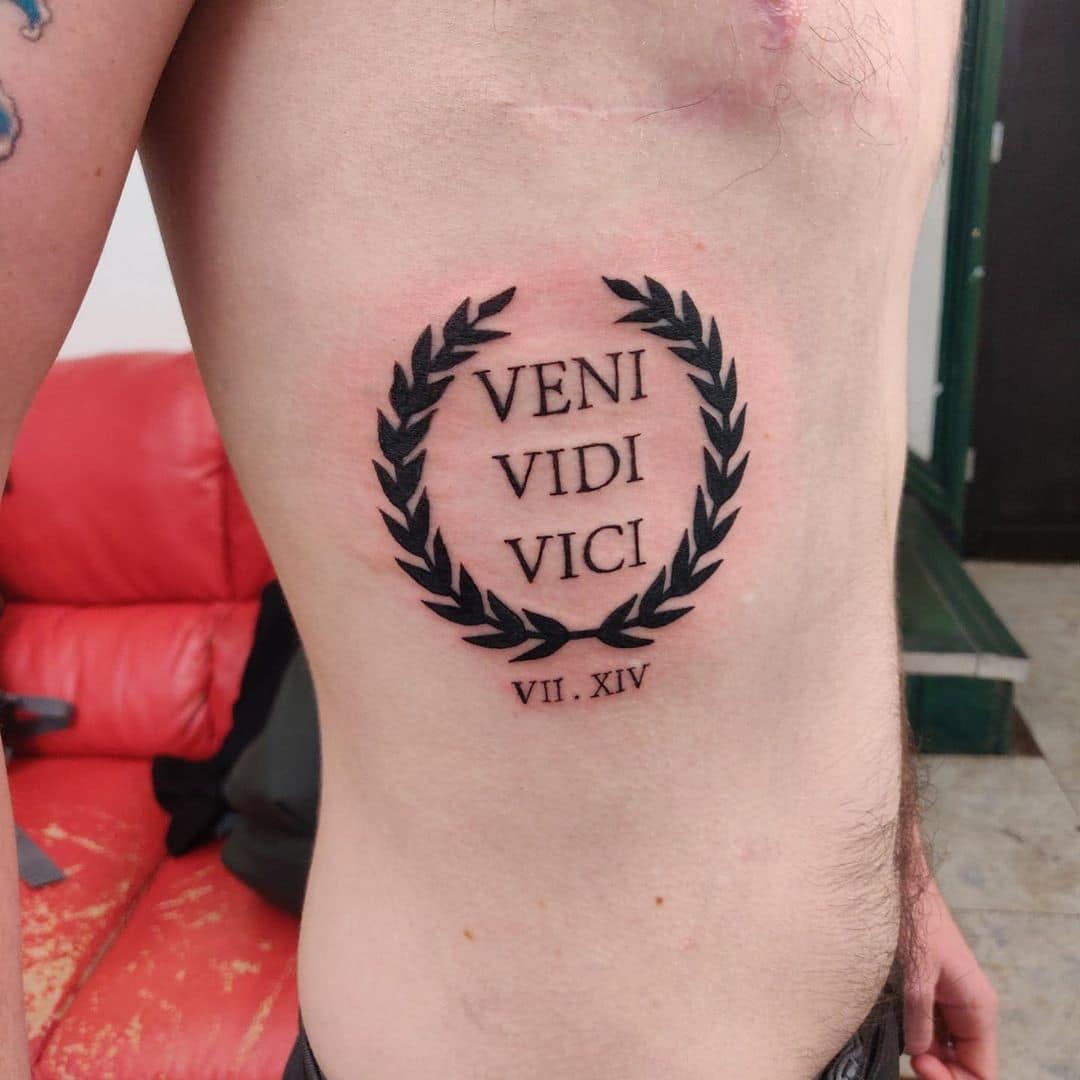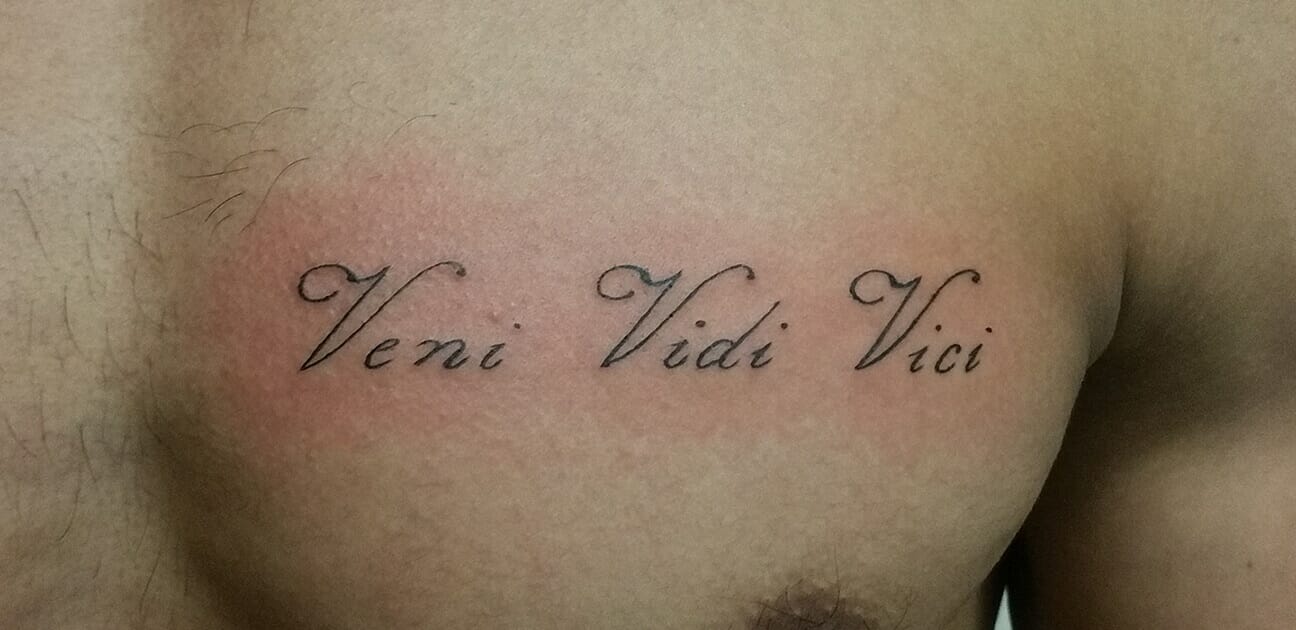

If u guys have any other suggestions i'd love to hear it. but so far it looks really good !ītw, you have any thoughts about having any physical side effects when getting tattooed ? Hmm i realize i'm just justifying this to myself haha. i mean i don't see why it should be seen as trying to copy zyzz (even though that was the direct inspiration), rather taking a leaf out of a great man who uttered an immortal phrase 2 millennia ago Get inspired with Veni Vidi Vici Tattoos. I get that, but in my country at least i don't see a lot of people running around with it (mainly bec here the bb community is smaller, and therefore less mainstream knowledge of zyzz)Īnd i'm thinking it might be personal to him but the message is pretty universal and can apply to everyone (like you) trying to effect changes and overcome challenges. Unique and Italian Veni Vidi Vici tattoo fonts, ideas, designs and pictures with meaning for on chest or finger. Trying to be friendly I asked if they were the names of his kids. It's all on how you feel about it, i personally wouldn't walk around as a copy, but rather try to come up something unique for myself. 60 Veni Vidi Vici Tattoo Designs For Men Julius Caesar Ideas If this picture is your intelectual property (copyright infringement) or child pornography. He had the words 'Veni, Vidi, Vici' tattooed on his arm.


There's a lot of people running around with that tattoo nowadays. These meanings are also partly connected with tribal lion designs.I think the tattoo has some class to it, but it was personal to him. The tattoo today symbolizes inner strength, persistence, a deep drive, an unwillingness to surrender, and a determination to beat the odds and come out stronger on the other side. The phrase I came, I saw, and I kicked some ass is all the rage recently and goes to show that we all have struggles that the rest of the world can never truly understand. Many people will create a unique play on words to symbolize a struggle they are proud to have beaten. The veni vidi vici tattoo today can be a direct reference to challenges with literature, art, or even music. The look of an eagle tattoo will depend on the individual for some men, it could be a skull, weapon, or tribal design. The unique meaning of this tattoo implies that a person has found and seen wisdom, an understanding, or a new belief that no matter the degree of difficulty, nothing will ever bring this person down.ĭepending on the challenge and the amount of effort to overcome, these words can help propel someone on to great things by reminding them where they have been. The veni vidi vici tattoo can tell the world about political struggles, economic pain, or a journey to a new religious path. Veni, vidi, vici is Latin for I came, I saw, I conquered, attributed to Julius Caesar who, according to Appian, used the phrase in a letter to the Roman. The brand of a warrior ( gallery of warrior tattoos), many ex-military bear this ink to show that they have been to the gates of Hell and survived. Rather than coming, seeing, and conquering, they associate these words with evidence that no matter how large of an obstacle, they have found a way through once and they will continue to fight and do it again.

The veni vidi vici tattoo for them symbolizes having seen struggles and broke through to the other side where life is abundantly pleasurable for them. Many people today are still struggling to find their own personal identify in a crowded world. Today, overcoming huge personal obstacles can be just as daunting. When Julius Caesar uttered those words to the Senate, he was in fact, telling them of his historic victory and huge military prowess. Dealing with an addiction, a lost love, or the pain of war, can be symbolically referenced using these words in a tattoo, similarly to a small bird tattoos. Veni, Vidi, Vici 'Veni, vidi, vici' is a latin phrase which means 'I came I saw I conquered', used by Julius Caesar on a letter to the Roman Senate around 46 BC, after achieving victory in his short war against Pharnaces II of Pontus at the Battle of Zela (now in Tokat Province, Turkey, and known as Zile).


 0 kommentar(er)
0 kommentar(er)
